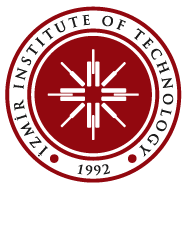Curriculum (PhD)
Ph.D. in Electronics and Communications Engineering
Common Core Courses:
|
EE 598 |
(0-2)NC |
Research Seminar* |
|
EE 600 |
(0-1)NC |
Ph.D. Thesis |
|
EE 8XX |
(4-0)NC |
Special Studies |
|
EE 9XX |
(4-0)NC |
Special Topics |
* This course must be taken by Ph.D students accepted with B.S. degree until the beginning of their 6th semester.
Research Area Core Courses:
In addition to the common core courses, students enrolled in the program must choose a research area and take the research area core courses. For each core course or its equivalent taken in a previous study, one additional course is required. The research area courses for each area are given in the following lists.
Area 1: Intelligent Systems and Control
| EE 502 |
(3-0)3 |
Linear System Theory |
| EE 531 |
(3-0)3 |
Probability and Random Processes |
| EE 532 |
(3-0)3 |
Stochastic Analysis and Estimation for Dynamical Systems |
| EE 533 |
(3-0)3 |
Digital Signal Processing |
| EE 534 |
(3-0)3 |
Advanced Digital Signal Processing |
| EE 538 |
(3-0)3 |
Detection and Estimation Theory |
| EE 543 |
(3-0)3 |
Artificial Neural Systems |
| EE 546 |
(3-0)3 |
Pattern Recognition |
| EE 547 |
(3-0)3 |
Computer Vision |
| EE 556 |
(3-0)3 |
Nonlinear Systems Analysis |
| EE 559 |
(3-0)3 |
Nonlinear Control Design |
| EE 560 |
(3-0)3 |
Robot Manipulator Control |
| EE 561 |
(3-0)3 |
Advanced Robot Kinematics |
EE 502 and EE 556 are the research area core courses in Area 1.
Area 2: Signal Processing
| EE 531 |
(3-0)3 |
Probability and Random Processes |
| EE 532 |
(3-0)3 |
Stochastic Analysis and Estimation for Dynamical Systems |
| EE 533 |
(3-0)3 |
Digital Signal Processing |
| EE 534 |
(3-0)3 |
Advanced Digital Signal Processing |
| EE 535 |
(3-0)3 |
Adaptive Filter Theory |
| EE 536 |
(3-0)3 |
Speech Processing I |
| EE 537 |
(3-0)3 |
Speech Processing II |
| EE 538 |
(3-0)3 |
Detection and Estimation Theory |
| EE 539 |
(3-0)3 |
Audio Signal Processing |
| EE 540 |
(3-0)3 |
Wavelet Theory Multiresolution Signal Analysis |
| EE 541 |
(3-0)3 |
Speech Synthesis |
| EE 542 |
(3-0)3 |
Multidimensional Signal Processing |
| EE 545 |
(3-0)3 |
Image Processing |
| EE 546 |
(3-0)3 |
Pattern Recognition |
| EE 547 |
(3-0)3 |
Computer Vision |
| EE 548 |
(3-0)3 |
Medical Imaging Systems and Application |
| EE 549 |
(3-0)3 |
Biomedical Image Analysis |
| EE 550 |
(3-0)3 |
Computational Biology |
EE 531 and EE 533 are the research area core courses in Area 2.
Area 3: Communication Systems
| EE 531 |
(3-0)3 |
Probability and Random Processes |
| EE 532 |
(3-0)3 |
Stochastic Analysis and Estimation for Dynamical Systems |
| EE 533 |
(3-0)3 |
Digital Signal Processing |
| EE 534 |
(3-0)3 |
Advanced Digital Signal Processing |
| EE 535 |
(3-0)3 |
Adaptive Filter Theory |
| EE 538 |
(3-0)3 |
Detection and Estimation Theory |
| EE 544 |
(3-0)3 |
Information Theory and Coding |
| EE 551 |
(3-0)3 |
Digital Communications I |
| EE 552 |
(3-0)3 |
Digital Communications II |
| EE 553 |
(3-0)3 |
Error Control Coding |
| EE 554 |
(3-0)3 |
Wireless Communications |
| EE 555 |
(3-0)3 |
Computer Communication Networks |
| EE 557 |
(3-0)3 |
Multiple Antenna Techniques in Wireless Communications |
| EE 558 |
(3-0)3 |
Advanced Wireless Communication |
| EE 562 |
(3-0)3 |
Telecommunication Circuits |
EE 531 and EE 551 are the research area core courses in Area 3.
Area 4: Electromagnetics, Microwave, Photonics and Optical Communications
| EE 510 |
(3-0)3 |
Photonics |
| EE 511 |
(3-0)3 |
Introduction to Optical Fiber Communications |
| EE 512 |
(3-0)3 |
Advanced Optical Fiber Concepts |
| EE 513 |
(3-0)3 |
Optical Fiber Sensors |
| EE 515 |
(3-0)3 |
Optoelectronics |
| EE 516 |
(3-0)3 |
Fourier Optics |
| EE 521 |
(3-0)3 |
Advanced Electromagnetic Theory I |
| EE 522 |
(3-0)3 |
Numerical Methods for Electromagnetics |
| EE 523 |
(3-0)3 |
Antenna Theory |
| EE 524 |
(3-0)3 |
Microwave Devices and Applications |
| EE 525 |
(3-0)3 |
Asymptotic Techniques in Electromagnetic |
| EE 526 |
(3-0)3 |
Advanced Electromagnetic Theory II |
| EE 527 |
(3-0)3 |
Microwave Measurement Techniques |
EE 510 and EE 521 are the research area core courses in Area 4.
Out of Research Area Course:
Students enrolled in the program must take one course from any of the other research areas.
Mathematical Foundations Course:
Student enrolled in the program must take one course from the Mathematical Foundations Course List. If EE 502 is taken as a research area core course, one additional course is required from that list.
Elective Courses:
The course work can be completed by taking the courses in the EE Course List or any engineering and science departments.
| Total credit (min.) : | 21 (for students with MS degree) |
| Number of courses with credit (min.) : | 7 (for students with MS degree) |
| Total credit (min.) : | 42 (for students with B.S. degree) |
| Number of courses with credit (min.) : | 14 (for students with B.S. degree) |
